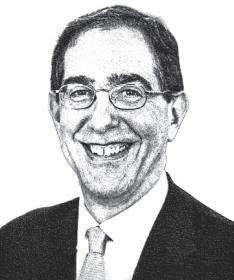People often ask me what I like best about my job. The answer is easy: I enjoy meeting Princetonians of all types—undergraduates, graduate students, alumni, staff , and faculty—and learning their stories.
I especially treasure the dinners that I host for newly tenured faculty members at Lowrie House, the Princeton president’s offi cial residence. We have seven or eight such dinners each year, half of them for internally promoted associate professors and half for lateral appointments from other colleges and universities.
The dinners are a longstanding Princeton tradition. I do not know whether Presidents McCosh or Hibben held them, but Shirley Tilghman certainly did. I still remember the dinner that she hosted for the ecologist David Wilcove, the mathematician David Gabai, and me. We talked about owls, multidimensional doughnuts, and constitutional rights.
These meals, which include faculty spouses or partners, take place around the Lowrie House dining table, which can seat up to twenty people. Princeton Campus Dining, which runs the University’s dining halls, also caters at the president’s house. The talented team of chefs prepares delicious and imaginative dinners, and the attentive staff ensures that the occasions are festive and happy.
Conversations range widely across topics both serious and light. We discuss world events, University policy, McCarter Theatre productions, and children’s Halloween costumes. People get to know one another as family and friends and as faculty colleagues—even, sometimes, as potential co-authors.
For me, though, the highlight is hearing our marvelous faculty members describe their research, scholarship, and teaching. At one October dinner, for example, we covered the evolution of mosquitoes, potential applications of blockchain technology, and statistical arguments about racial bias in policing.
Earlier in the same month, I had a chance to talk with scholars about gender disparities in professional labor markets, conceptions of human well-being, and eff orts to educate undocumented college students in America.
Faculty members seem to enjoy these celebratory dinners so much that they are sometimes reluctant to leave. I have a variety of strategies for bringing the evening to a close—every once in a while I get as far as “Plan C,” which involves allowing my golden retriever-Labrador mix, Buster, to “accidentally” escape into the public areas of Lowrie House. His exuberance invariably gets people to their feet. (I’m pretty sure that those nights are his favorites!)
Provost Jen Rexford ’91 and Dean of the Faculty Gene Jarrett ’97 join the Lowrie House dinners. One benefi t of this practice is that the three of us come to know almost all the tenured faculty members at Princeton by name. That is rare for a great research university, and it surprises some recent arrivals. When I was provost, I walked past a newly hired art historian and greeted him by name. He blanched. “Oh no,” he said, “the provost knows my name— what have I done wrong?”
At another university, the provost’s attention might be a sign of trouble. At Princeton, it is just one manifestation of our unusually personal, collegial, and friendly intellectual environment.
That is a great advantage, in my view. George Shultz ’42 used to say, “Trust is the coin of the realm.” Approaching his 100th birthday, he told the Washington Post he had learned this:
“When trust was in the room, whatever room that was— the family room, the schoolroom, the locker room, the offi ce room, the government room, or the military room—good things happened. When trust was not in the room, good things did not happen. Everything else is details.”1
“I regard my dinners with faculty members as sources of both personal joy and institutional strength for our University.”
It is much easier for people to trust one another when they know each other’s names. Trust does not mean that people will agree or that they will always like one another—but it does mean that they can build relationships and learn from one another.
For that reason, I regard my dinners with faculty members as sources of both personal joy and institutional strength for our University. Like Reunions, they are a tradition worth cultivating, and a special pleasure for a Princeton president.
No doubt some college presidents have similar stories to tell from their own campuses, whereas others relish grander venues.
For example, I once overheard one of my counterparts wax poetic about sharing cocktails with a wealthy architect at dusk on a yacht in the Mediterranean. He described that as a highlight of his job. I am certain that the sunset was, as he said, exquisite.
For me, though, the most delightful pleasures of my job are much closer to home, and never greater than around the Lowrie House dinner table, when I am happily immersed in what I immodestly regard as the best scholarly community in the world.

